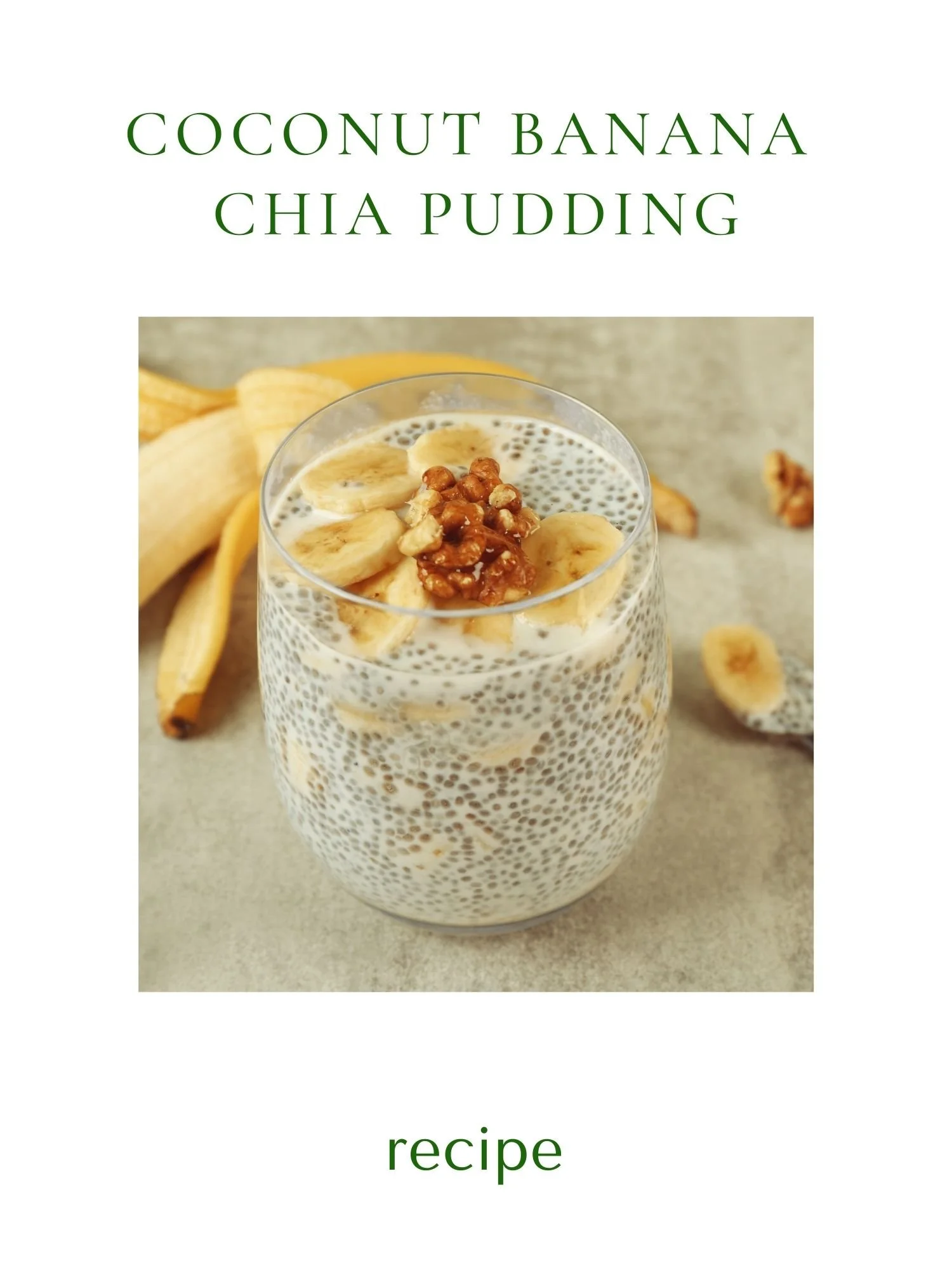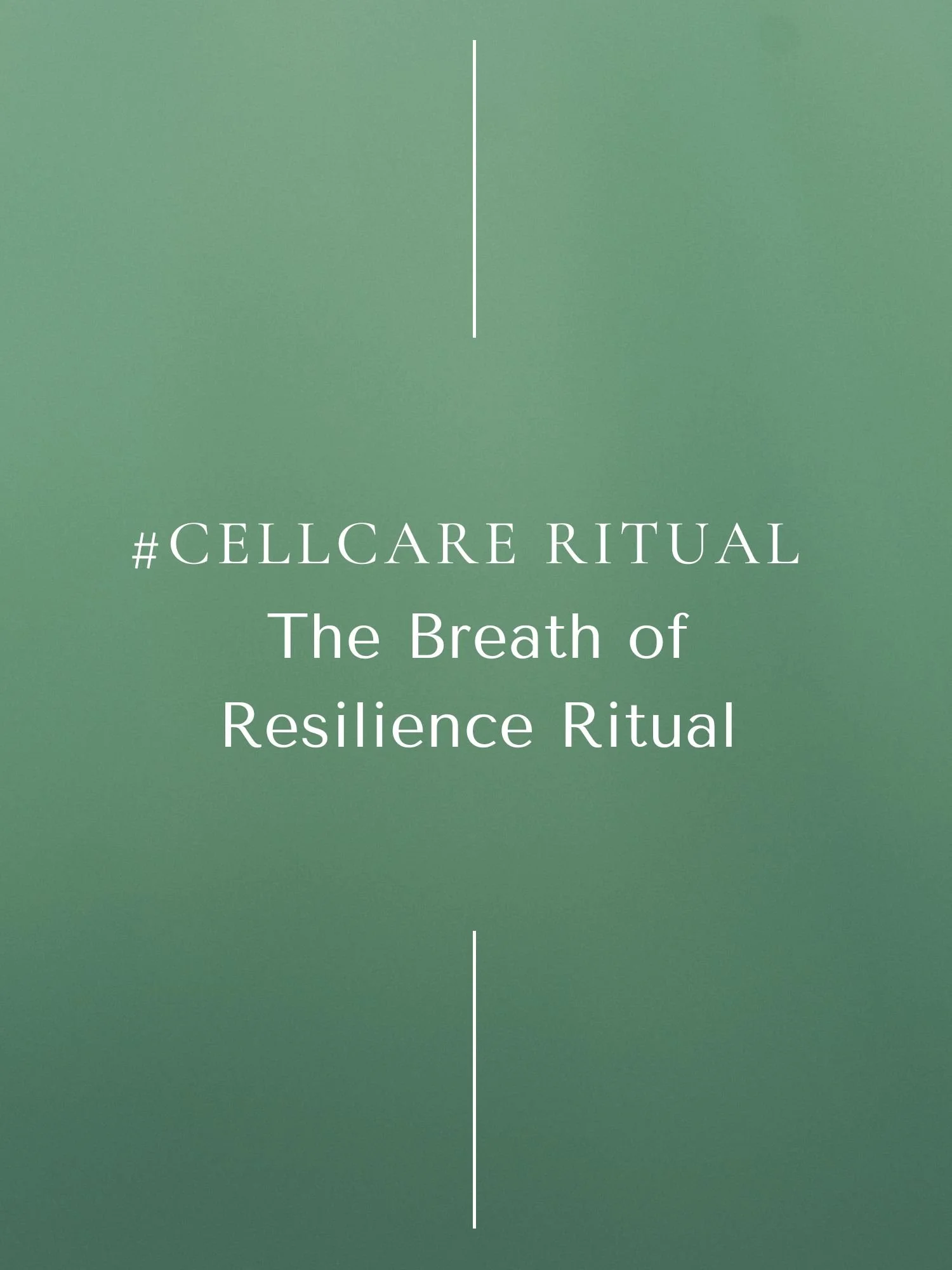The Gut-Brain Connection: What your Brain Fog May Be Telling You
Do you feel like your brain is always foggy? You’re not alone.
We all experience brain fog to some degree — everything from intense fatigue to difficulty concentrating, even depression. But what if this feeling of being out of it and unmotivated isn't just a passing phase? What if there's a hidden cause behind it?
In this blog, I'll explain how your gut health impacts your brain and why it may be causing that feeling of "brain fog." As an integrative lifestyle physician, I help people uncover their triggers so they can feel better and live their best lives. So, let's dive into the science behind this connection for all of us!
Brain fog - brain fatigue - what is it?
In essence, brain fog is the state of being slow and sluggish. In spite of its lack of formal clinical diagnosis, brain fog is a useful catch-all term to describe fuzziness of thinking and feeling “spaced out.” The following symptoms are common in people suffering from brain fog:
Having difficulty concentrating and being distracted
Sense of confusion
Inability to remember
Having trouble thinking clearly
Experiencing headaches
Many things can trigger brain fog, including sleep deprivation, stress/burnout, concussions, and illness. A person with cognitive dysfunction may be able to address it by returning to healthier habits, such as sleeping better and exercising regularly.
ARTICLE CONTINUES BELOW
Anxiety is a common symptom of imbalanced gut bacteria and can be caused by several different issues
It's important to note that anxiety is not always related to gut health; anxiety often stems from other sources of stress or trauma. However, there are also many cases where anxiety is caused by digestive distress.
Leaky gut syndrome is one potential cause of anxiety that has been gaining traction recently as more research emerges on the topic. Leaky gut occurs when your intestines become permeable due to an imbalance in good vs bad bacteria. This causes toxins to leak into your bloodstream instead of being properly absorbed by your digestive system and excreted out through bowel movements (or peeing). These toxins can then travel throughout the body via blood vessels and trigger an immune response which results in inflammation—which itself contributes to anxiety symptoms like brain fog or fatigue!
So, what can you do about it? The first step is to get tested for leaky gut syndrome. It's not a standard test to run, but most integrative health practitioners will have access to one if you ask them.
Depressive symptoms are also often related to gut health
When it comes to depression, the gut-brain connection is a two-way street. Depression can negatively affect your gut health, which in turn can affect your mood and ability to function normally. Gut microbes influence neurotransmitters (chemicals that send messages from nerve cells in the brain) that are involved in mood regulation and stress responses. When these functions are affected, it can result in symptoms of anxiety and depression.
Additionally, there's also evidence that suggests that your emotional state may impact your gut microbiome in turn. Stressful circumstances like chronic depression have been shown to reduce levels of beneficial bacteria such as Bifidobacterium lactis—while increasing levels of harmful bacteria such as Fusobacterium nucleatum—one associated with colorectal cancer risk!
Probiotics have been shown effective at improving symptoms associated with depression and stress disorders; they may provide relief by restoring a healthy balance between good and bad bacteria within our gut walls or by affecting body processes such as inflammation or serotonin levels directly through their interaction with neurons (nerve cells). Additionally, probiotics may improve mental health indirectly by reducing inflammation throughout the body (which has been linked strongly with cognitive performance).
EAT THESE FOODS DAILY TO CLEAR UP BRAIN FOG
Your gut is a critical part of your immune system, and can impact your risk for chronic illnesseS
The microbiome is the community of organisms in your gut ecosystem. It's a complex ecosystem that contains trillions of microbes—bacteria, viruses, fungi and others—that live inside you. They're necessary for digestion and other functions like immune function, metabolism and detoxification. A healthy microbiome also helps you:
Maintain a healthy weight
Improves mood
Provides vitamin synthesis
Protects against infection and inflammation
Regulates gene expression
Produces natural antibiotics to fight disease-causing microbes such as Candida albicans (a fungus found in small amounts on the skin or mucous membranes)
Synthesizes B vitamins from food sources like choline (found in tofu), folic acid (found in green leafy vegetables) lutein/zeaxanthin (found in kale) & riboflavin 5' phosphate esterase activity (found in asparagus & spinach)
And helps you absorb minerals like zinc, selenium and iron.
The ecosystem is complex, but there are ways that you can support it.
Gut dysbiosis can result in increased food intolerances or sensitivities
It is important to remember that the gut-brain connection is a two-way street. You gut bacteria respond to stress by altering the chemical composition of their communities and the compounds they produce. This can cause immune system changes, which can make you more susceptible to food intolerances or sensitivities.
Dysbiosis (in which good and bad intestinal bacteria are out of balance) can lead to increased inflammation throughout your body and stress responses causing inflammation in your brain. Inflammation is associated with depression, anxiety disorders and other mental health problems as well as being a risk factor for chronic illnesses like heart disease and cancer. Inflammation also affects sleep quality which can make it hard to fall asleep or stay asleep at night as well as impacting cognitive function during waking hours like memory recall ability or decision-making skills required at work/home life etc...
It’s important to note that there is no one-size-fits-all approach to gut health. Some people may be able to improve their gut bacteria by making dietary changes, while others may need probiotics or prebiotics (foods that contain them), digestive enzymes, or even antimicrobial herbals. Eating foods high in fiber and low in sugar can also help your body absorb nutrients better while preventing cravings for unhealthy foods.
You can't make all of your nutritional needs from food alone—you need good gut health too!
Your digestion process begins in the mouth with chewing and swallowing of food. Once it passes through the stomach and small intestine, where nutrients are extracted (the foregut), it continues down into the colon (the midgut) before finally exiting out through the rectum (the hindgut). The bacteria that live within our intestinal tracts help break down certain dietary components into usable forms that our cells can absorb as energy sources; they also produce important vitamins like K1 and vitamin B12 which we need to stay healthy but cannot make ourselves without some help from our microbiome.
To improve your digestion, take time to be mindful when you are eating. You can use the Wellbeing Lifestyle Plate method (read more in Chapter 4 of The Anatomy of Wellbeing book):
Be present: Turn off the TV, put away the cell phone, and when you eat, just eat
Observe: Breathe and do a belly check, notice your body, low energy, rumbling stomach, stressed out
Non-judgment: Speak compassionately, notice when rigid rules pop into your mind
Savor: Notice the flavor, texture, and aroma of your meal
Don't overlook leaky gut syndrome! It can cause many other health problems
If you’ve been experiencing brain fog, don’t overlook leaky gut syndrome! It can cause many other health problems.
Leaky gut syndrome is a condition where the lining of your digestive tract becomes damaged and permeable, allowing particles to leak into the bloodstream. This can lead to a number of health issues, including food intolerances and sensitivities, autoimmune disease, chronic inflammation and more.
While there isn’t currently any cure for leaky gut syndrome (yet), there are steps you can take to help ease symptoms and reduce inflammation in your body:
Improve your diet: eat whole foods that are low on the glycemic index; avoid processed foods; eat lots of vegetables (they contain natural antibiotics) and fermented foods (like sauerkraut).
Add probiotics into your diet—they'll help restore healthy bacteria levels in the gut. You can buy them at any health food store or online.
Take fish oil supplements—omega-3 fatty acids work wonders for relieving inflammation in the body.
Reduce stress levels by meditating or taking up yoga or tai chi classes!
Drink plenty of water—it helps to flush out toxins from your system. Try drinking an herbal tea, like peppermint or ginger.
Don’t smoke and avoid secondhand smoke. This will reduce the risk of lung cancer, which can cause inflammation to spread throughout the body.
Regular exercise helps cleanse the body, move the bowels, and reduce inflammation.
If you feel out of balance, you might need to pay attention to your microbiome
If you're feeling out of balance and wondering if your gut health might play a role, consider making some changes to your diet. Your microbiome plays a vital role in mood and cognition, so if you've been neglecting it, it might be time to start paying attention again.
You can also help keep your gut bacteria happy by avoiding stress and getting enough sleep (both of which have been linked to lower levels of certain bacteria).
Finally, it's important not to ignore the impact that food choices have on the health of our microbiomes. Avoiding processed foods and eating more whole foods will help ensure that our microbiomes aren't being overwhelmed with artificial ingredients that can cause inflammation or disrupt digestion processes—and ultimately reduce their ability to do their jobs!
Is there anything you should eat to clear your brain fog or brain fatigue?
Omega 3 rich food: Although fish oil and fish like salmon are the most well-known sources of omega 3 fatty acids, even vegetarians can consume omega 3 fatty acids by eating these best plant sources:
ALA omega-3 fatty acids can be found in chia seeds - make overnight chia seed pudding to get a boost of their health benefits
A great source of omega-3s, magnesium, iron, and zinc, hemp seeds are also a good source of fiber and vitamin E. I enjoy them sprinkled on salads and even dipped in bananas.
When you begin to feel slowed down in the afternoon, walnuts are the perfect afternoon snack. Studies have linked walnuts with improved cognition and memory. Plus, walnuts contain anti-inflammatory products and magnesium that boosts memory and processing of information.
Ground flaxseed provides over 2000 mg of ALA omega-3 fatty acids in one tablespoon, making it a great addition to oatmeal and soups.
EPA and DHA are found in algae oil, making it comparable to seafood as a source of omega-3 fatty acids - you can buy supplements of this oil.
A healthy diet should consist of plenty of monounsaturated fats, such as avocados, in order to maintain a person's energy level throughout the day. As an added benefit, avocados contain lutein, a carotenoid that improves cognitive ability and memory
In the brain, BDNF (brain-derived neurotrophic factor), a protein essential to neurogenesis (making new neurons), is increased by berries. Furthermore, berries contain powerful antioxidants that can prevent neurodegeneration caused by free radicals. During the summer, enjoy a berry smoothie, and during winter, garnish your oatmeal with mixed berries.
Greens such as spinach and kale are high in vitamin C and iron, while iceberg lettuce is low in nutritional value beyond fiber. As a result, dark leafy greens can help fight fatigue, especially when it's caused by an iron deficiency - a condition that can leave you tired and foggy-headed. Moreover, dark leafy greens contain nitrates that promote blood flow throughout the body and the brain.
TO SUPPORT OUR BRAIN FOG WITH OPTIMAL GUT HEALTH, WHAT DO WE DO NEXT?
If you have brain fog, you may be unable to think clearly or remember. It can make it hard to do things that require concentration and focus. But what does that mean for your gut health?
Think about it: When we’re stressed out, anxious, or depressed—all of which are common during brain fog—we can experience symptoms such as nausea, bloating, constipation and diarrhea. These issues aren’t just uncomfortable and make it hard to feel good enough about yourself to take care of yourself properly. In other words: Brain fog might not just affect how well we feel physically; it could also make us feel emotionally worse too! That’s why when we address both our physical and mental health at once—with the help of a doctor who understands how the brain-gut connection works—we see better results than ever before.
MAKE A DIFFERENCE BY SHARING THIS ARTICLE WITH OTHERS TO ENCOURAGE WELLBEING ⤵
REFERENCES:
FothYang, C., Fujita, Y., Ren, Q. et al. Bifidobacterium in the gut microbiota confer resilience to chronic social defeat stress in mice. Sci Rep 7, 45942 (2017).
Abed J, Maalouf N, Manson AL, Earl AM, Parhi L, Emgård JEM, Klutstein M, Tayeb S, Almogy G, Atlan KA, Chaushu S, Israeli E, Mandelboim O, Garrett WS, Bachrach G. Colon Cancer-Associated Fusobacterium nucleatum May Originate From the Oral Cavity and Reach Colon Tumors via the Circulatory System. Front Cell Infect Microbiol. 2020 Aug 7;10:400.
Peirce JM, Alviña K. The role of inflammation and the gut microbiome in depression and anxiety. J Neurosci Res. 2019 Oct;97(10):1223-1241.
Capuco A, Urits I, Hasoon J, Chun R, Gerald B, Wang JK, Kassem H, Ngo AL, Abd-Elsayed A, Simopoulos T, Kaye AD, Viswanath O. Current Perspectives on Gut Microbiome Dysbiosis and Depression. Adv Ther. 2020 Apr;37(4):1328-1346.
Fulgoni VL 3rd, Dreher M, Davenport AJ. Avocado consumption is associated with better diet quality and nutrient intake, and lower metabolic syndrome risk in US adults: results from the National Health and Nutrition Examination Survey (NHANES) 2001-2008. Nutr J. 2013 Jan 2;12:1.
The information on this website has not been evaluated by the Food & Drug Administration or any other medical body. We do not aim to diagnose, treat, cure or prevent any illness or disease. Information is shared for educational purposes only. You must consult your doctor before acting on any content on this website, especially if you are pregnant, nursing, taking medication, or have a medical condition. Our content may include products that have been independently chosen and recommended by Dr. Monisha Bhanote and our editors. We may earn a small commission if you purchase something mentioned in this article.
YOU MAY ALSO LIKE:
by Dr. Monisha Bhanote
✅ EVIDENCE-INFORMED REVIEWED ARTICLE












